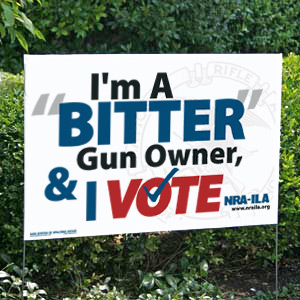Last Friday night at 11:30 PM, I was on stage at the Broadway Comedy Club in New York City “eating the check spot.” Six hours later, at “oh-dark-thirty” I was humping the hills of a local Army post, being fired upon by elements of the Fighting 69th Infantry Division.
For both the comedy club audience and myself, the latter was a hell of a lot more fun than the former.
Since 9/11, I have been a volunteer citizen-soldier in the New York Guard , the State’s official state defense force. The New York Guard is made up of hundreds of great guys and gals, about half military veterans and half – like myself – getting the opportunity to serve in the military for the first time a little late in life. We drill once a month and a week in the summer, training to assist the National Guard in stateside, non-combat missions. We are a “force multiplier,” trained and ready to respond to augment NY National Guard units on the chemical / biological / nuclear decontamination team, military emergency radio network communications, search and rescue teams (for lost campers in the Adirondacks, for example), medical and legal services, and a whole host of other missions. It’s a great way to serve and help the National Guard, and it accepts all kinds or people – rabbis, dentists, truck drivers, school teachers – even Emmy Award winning comedians.
Just like in the regular Army, some missions are more exciting than others. Sometimes you’re sitting in a cold (or oddly over-heated) armory risking paper cuts for God and country, shuffling personnel files and requisition forms in triplicate, and sometimes you’re out there in the field with your fellow soldiers, working as a team, getting muddy and exercising muscles (both physical and mental) you almost forgot you had.
Last weekend was one of the fun ones. A unit from the Fighting 69th, one of the Army’s best and most historic fighting units, was training up for woodland tactical maneuvers. As their platoon sergeant, Sergeant 1st Class Steve Swiderski, explained it: “These guys have been used to Iraq for so long, and in Iraq you’re in the cities, or in convoys, or in farmland. It’s been a while since they’ve navigated through forests.” It was an OPFOR (opposition force) field exercise. Ordinarily, the National Guard would have to split up the company, with half the soldiers in the field on maneuvers, training to be the good guys, and the other half taking up defensive positions as the simulated bad guys. Then, the two elements would have to flip-flop and do it all over again. With our guys – the New York Guard – acting as the opposition forces, the 69th was able to have their full team on maneuvers all at once.
A beautiful mission for my fellow New York Guardsmen and me, and for the National Guard. By having us augment their training, the 69th was able to accomplish their objectives in half the normal time. At the same time, we got the satisfaction of knowing we were helping to give these great young soldiers a realistic training simulation to keep their tactical skills sharp. Plus, we had a heck of a great time!
If I could figure out a way to make a living doing that, you’d never see me on stage again. Which, judging bythe reaction of the audience in the check spot the night before the field exercise, might be a good thing.
You want combat? Let’s talk about the check spot. The check spot is that time towards the end of the show at a stand up comedy club when the waitresses lay down the checks for the audience. The audience then, quite naturally, becomes consumed with signing their credit card slips, counting their cash, calculating their tips, ordering one last drink, splitting up the bill – anything but what the comic on stage is doing.
Like Charlie Brown running to kick the football and Lucy pulling it away, somehow I never learn. The check spot is my comedy Achilles heel. I’m in check spot denial. Somehow, every time, I never realize I’m doing the check spot until I’m actually in it. The fact that the emcee has segued from the last comic to me with a frenzied “Hey, let’s keep this show moving, I’m going to bring this next guy right up-” and then he runs off the stage, fleeing the check spot like a thief in the night – somehow I never get the hint. Here’s the torture of the check spot: you’re on stage, you’re getting big laughs, and all of a sudden – poof – the audience is gone. Well, they’re still there, but they’re talking to each other and you’ve gone instantly from hero to shmuck. And you’ve still got ten minutes to kill. Ten….slow….minutes.
Trust me, after ten minutes of that, running through the forest being chased by a National Guard soldier half your age who’s armed to the teeth ain’t scary at all. It’s a relief!
Being a comedian might not make me a better citizen-soldier, but serving in the New York Guard has made me a better comedian. I still stink at the check spot, but I don’t worry about it anymore. Twenty six states – including California (which includes Hollywood!) have official state defense forces performing similar augmentation missions for the National Guard. It’s a great way for people – even people in show business, even comedians (some of whom are people, too) – to serve.
Just like George Carlin (US Air Force), Lenny Bruce (Army), Drew Carey (USMC), Peter Sellers (RAF – UK), Leslie Nielson (RCAF – Canada), Zero Mostel (Army), Mel Brooks (Army), Don Knotts (Army), Sid Caesar (Coast Guard)…..


COMMENTS
Please let us know if you're having issues with commenting.